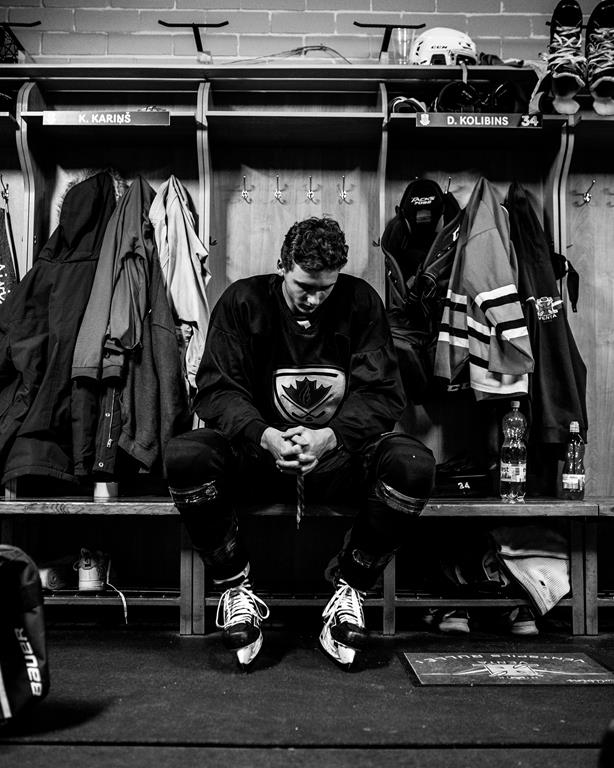Hockey is embedded within the fabric of Canadian culture; our national teams are celebrated, staunchly defended, and players are idolized. However, a dark cloud that has been lurking in the background is starting to become slightly more clear. Hockey Canada is under the microscope after an an alleged incident surrounding a prominent junior hockey team has exposed a disturbing pattern of toxic masculinity, sexual assault, and discreet settlements.
On June 19, 2018, the day after a charity gala event to celebrate Canada’s World Juniors gold medal win earlier that year, the London, Ont. police department received a report of sexual assault, filed by a woman identified through court documents as E.M., involving up to twelve members of the 2018 Canadian World Junior team. Hockey Canada reportedly became aware of the incident early that morning during a golf tournament, and held internal meetings to discuss how to proceed. The organization contacted the London police sometime that evening, and subsequently opened their own investigation through an independent law firm.
Eight months later, in February 2019, London police closed their investigation due to a lack of evidence. Hockey Canada followed and closed their own investigation in September 2020; as the complainant chose not to participate, even after no charges were laid by police. Hockey Canada’s investigation was optional for players, and thereby received mixed levels of cooperation from those who chose to be involved. The case publicly surfaced in May 2022, when E.M. settled her lawsuit with Hockey Canada and eight unnamed players.

On Jan. 31, 2024, Carter Hart, Cal Foote, Dillion Dube, and Alex Formenton were charged with one count each of sexual assault. Michael McLeod has been assessed a second count for being a “party to the offence.” Formenton was playing in Europe before surrendering to police, while Hart, Foote, Dube, and McLeod were in the NHL when they went on leave from their teams. None of these charges have yet been proven in court and all five players are preparing to plead not guilty.
In the wake of E.M.’s settlement, in July of 2022, a parliamentary committee at the House of Commons called upon Hockey Canada’s executives to face questioning amidst public backlash over the case, and to find out what taxpayer’s dollars were being spent on. Over the course of the hearings, it was discovered that Hockey Canada has quietly paid out nine settlements since 1989 that involved sexual assault, not including E.M.’s lawsuit; it was also revealed that they have handled an average of one to two sexual assault cases a year, over the last six years.
The swift action taken by Hockey Canada to settle their 2022 lawsuit with E.M. has come into question, while the federal government responded by freezing the organization’s funding, which was valued at $7.7 million in 2022. Hockey Canada was motivated to handle the situation without an insurer, to avoid any further investigations. They instead paid sexual assault settlements out of a multimillion-dollar reserve: the National Equity Fund (NEF). The NEF is partly funded by registration fees across the country, collected from Timbits Hockey to adult rec leagues, unbeknownst to parents or players. There are reports that the fund has exceeded $15 million in recent years. Details of how the NEF operates are not included in annual reports or in the handbook for parents and players, which states that registration fees are spent solely on insurance coverage. The fund is used at Hockey Canada’s discretion, to cover charges that are deemed uninsurable or that are settled without an insurer being present.
The public reaction resulted in major sponsors deciding to walk away from Hockey Canada; including Nike, their long-time jersey provider, and Canadian Tire. Tim Hortons, Esso, and Telus paused their partnerships with the organization, which have now been reinstated. With all the attention and scrutiny, London police and Hockey Canada reopened their investigations, requiring full participation from players. Hockey Canada’s investigation has now concluded but is under appeal and cannot be made public, while London’s investigation has obviously resulted in five players being charged; out of the eight players involved in the settlement, and the upwards of twelve initially reported to police.
Sadly, E.M.’s case appears to be far from an isolated incident of sexual assault involving players under Hockey Canada’s oversight. Changes have been made at the top, as CEO Scott Smith and the board of directors have stepped down, but the organization needs to heavily invest in reforming the culture of hockey in Canada if it wants to rebuild its tattered reputation.



